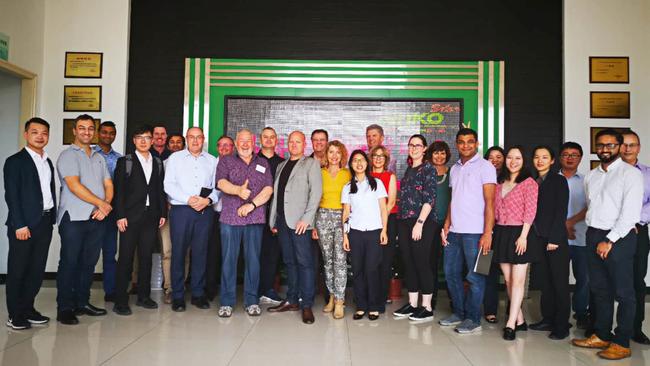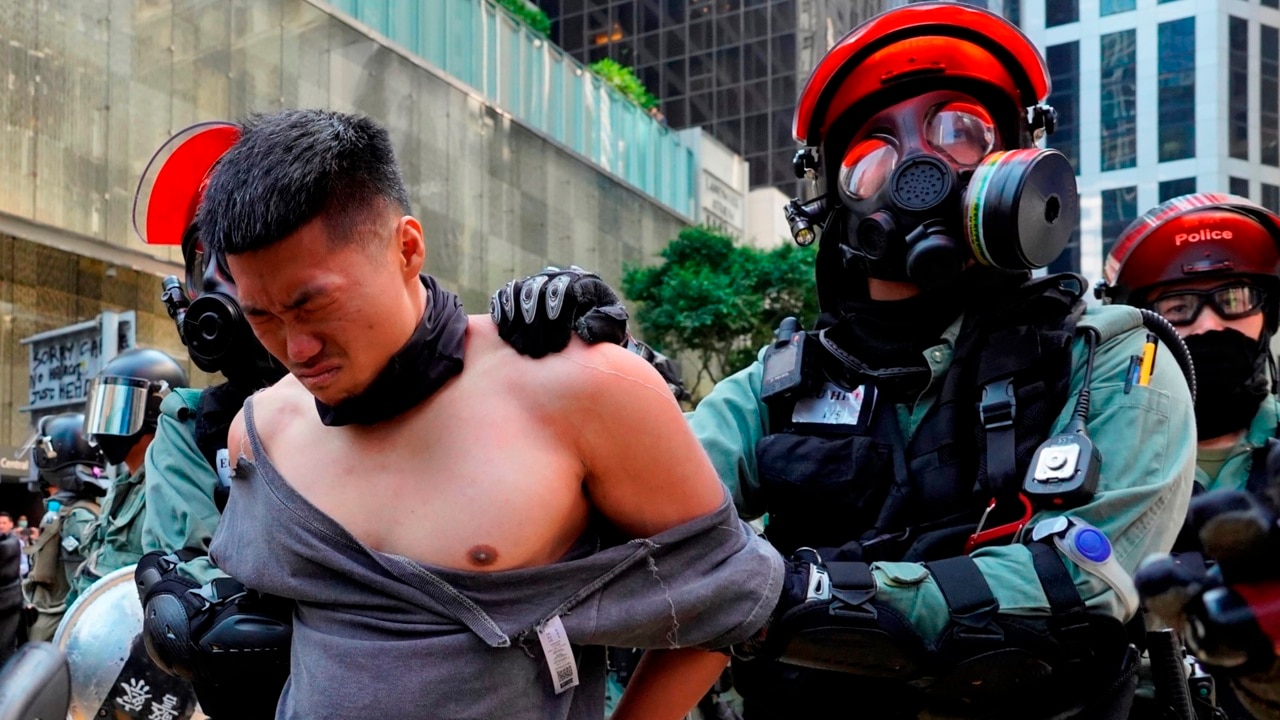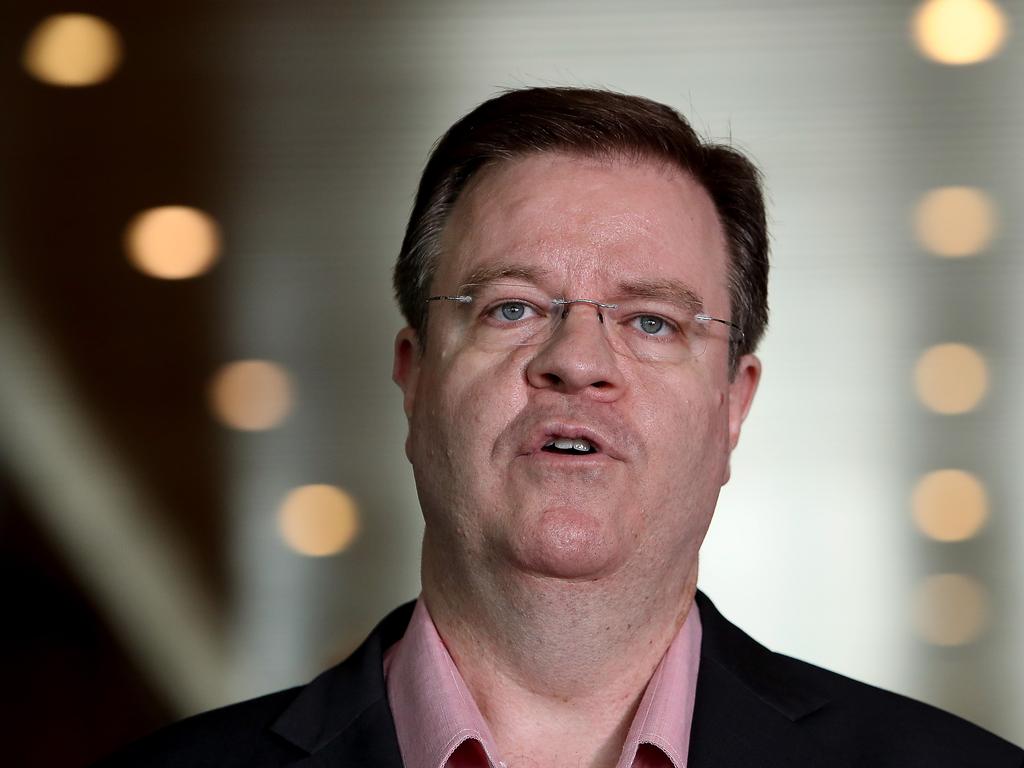Smart Energy Council linked to black-listed solar firms accused of slave labour
The Labor-linked Smart Energy Council, which counts Simon Holmes a Court as a senior adviser, has been receiving thousands of dollars from solar and battery firms black-listed in the US over concerns they use slave labour.

A Labor-linked climate charity has been receiving thousands of dollars from clean-energy firms black-listed in the United States over concerns they use slave labour, with the green lobby group and its senior adviser, Simon Holmes a Court, having visited a Chinese company accused of forced labour practices.
The Smart Energy Council – which has charity status despite having donated to the ALP and run campaigns calling on voters to “bin” the Coalition – is responsible for the disputed claim that the opposition’s nuclear policy will cost $600bn.
That $600bn figure has been weaponised by Anthony Albanese throughout the election campaign, as the Prime Minister alleges the charity’s calculations are proof the Liberal nuclear policy will lead to cuts in other government areas.
The Australian can reveal a number of the SEC’s sponsors and 2025 conference exhibitors – including major solar panel manufacturer Jinko Solar – have been embroiled in allegations over forced labour and “the oppression of minority groups” including Uighurs in China’s Xinjiang region.
SEC members including Mr Holmes a Court – an adviser and former board member of the charity – appear in photos posted by Jinko in 2019 capturing a visit by an Australian delegation “led by the SEC” to one of its factories in Shangrao.
Within three years of the visit, Jinko Solar was raided by the US Department of Homeland Security after having some of its shipments seized under the Uighur Forced Labor Protection Act. In 2023 the company was assessed by Sheffield Hallam University as having “high exposure” to state-imposed forced labour upon the Uighur community and other minorities, but has repeatedly denied allegations of illegal labour practices.
Mr Holmes a Court was contacted for comment.

The same Sheffield Hallam University paper identified other companies linked to the SEC as having “high exposure” to forced labour, including SEC “gold partner” JA Solar, which donates more than $6500 each year to the climate charity in exchange for an “insiders’ communication channel” with SEC staff via WhatsApp and advocacy events including Parliament House visits.
A 2024 Horizon Advisory report noted executives of JA Solar and Trina Solar – which was an SEC 2025 conference exhibitor – “have influential positions in the Chinese political and party landscape”.
JA Solar was also added to the US forced labour prevention list this year, banning it from shipping goods to the country.
When asked if the SEC had any concerns over the organisations it was involved with having links to slave labour, SEC chief executive John Grimes said the charity had a long-held public stance regarding principles for ethical solar, but that individual companies should be contacted “for their own views”.
“The Smart Energy Council joins other solar international stakeholders to condemn use of forced labour in all industries wherever such human rights abuses are found,” the SEC principles state.
“The Smart Energy Council is committed to working with its members and suppliers to establish and maintain ethical, sustainable and socially responsible operations and supply chains.”
Australian Electoral Commission data shows the SEC – whose board members include former Labor shadow minister Terri Butler – donated to the Australian Labor Party as recently as 2023-24, when it handed over $42,000, and in 2021-22 when it donated $29,000.

The AEC has previously ordered the SEC to cease political activities such as selling stickers for bins during the 2022 election declaring voters should “chuck out” Scott Morrison and Barnaby Joyce.
Mr Grimes has appeared in several press conferences with Labor frontbenchers, including Climate Change and Energy Minister Chris Bowen, who also spoke at the SEC’s 2025 conference.
Another sponsor contributing thousands of dollars a year to the SEC, battery manufacturer Alpha ESS, is owned by predominantly Chinese interests including EVE Energy, which in 2024 was found by human rights group Globalworks to have “contributed to state-imposed forced labour and land evictions”.
Hillhouse – another ALPHA ESS shareholder – is also a top investor in Yitu Technology, which in 2019 was black-listed by the US Department of Commerce for its “implication in human rights violations and abuses”.
Alpha’s SEC titanium sponsorship, worth more than $20,000 a year, gives the company access to “specialist advisory services” and policy intelligence briefings by the SEC.
All of the companies accused of forced labour have denied the accusations and declared they were committed to upholding best practice.
According to the Australian Charities and Not-for-profits Commission, most of the SEC’s income comes from conferences and sponsorship, making up $2.9m of its $8m in revenue in 2024 – up from $2.4m in 2023.
And of the 38 full-time staff the ACNC reports are working for the climate group, one is a China sales manager dedicated to “assisting Chinese companies enter the Australian smart energy market”.
In response to questions over its links to forced labour, including Hillhouse’s investment in YITU, Alpha ESS said in a statement “Hillhouse Capital is a global investment management firm with assets under management in excess of hundreds of billions”.
“Its investment in Yitu is a minor part of its diversified portfolio, and Hillhouse does not participate in Yitu’s business operations or decision-making,” the statement read.
Allegations of forced labour within the global solar supply chain have been ramping up over recent years, with about 45 per cent of the world’s solar-grade polysilicon coming from the Xinjiang region, where about 2.6 million Uighur and Kazakh citizens are alleged to be subjected to “surplus labour” programs.
A Labor spokeswoman said the Albanese government was committed to ensuring supply chains it used did not “promote, condone, or financially support modern slavery”.
“We want more solar panels made in Australia. That’s why Labor is onshoring its national manufacturing capability through the National Reconstruction Fund, Solar SunShot and Battery Breakthrough Initiatives,” the spokeswoman said.
The Australian government has also consistently raised concerns about severe human rights violations against Uighurs and other Muslim minorities in Xinjiang, including forced labour.








To join the conversation, please log in. Don't have an account? Register
Join the conversation, you are commenting as Logout